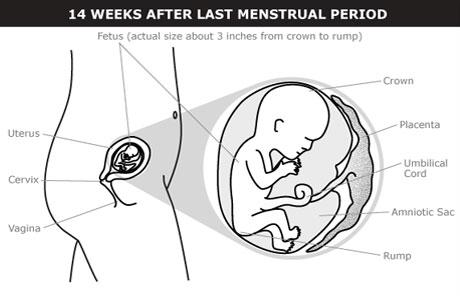4 Months Pregnant: Your Comprehensive Guide to the Second Trimester
Congratulations, you’ve reached the halfway mark in your pregnancy journey! At 4 months pregnant, you’re well into the second trimester, a time of significant developments for both you and your baby. In this comprehensive guide, we’ll explore the various aspects of being 4 months pregnant, from the physical changes you’re experiencing to the growth milestones of your little one. Let’s dive in.

Understanding Your Pregnancy at 4 Months
As you enter your fourth month of pregnancy, you’re in the midst of what many consider the most enjoyable trimester. Morning sickness has likely subsided, and you’re feeling more like yourself again. But what’s happening inside your body, and how is your baby growing?
Baby’s Development
At 4 months, your baby has made remarkable progress. Some key highlights include:
Size:
Your baby is about the size of a large peach, measuring around 5.5 inches (14 centimeters) from crown to rump and weighing about 5 ounces (140 grams).
Movement:
You may start feeling those tiny flutters known as “quickening.” It’s your baby’s way of saying hello!
Facial Features:
Facial features are becoming more defined, with eyebrows and eyelashes beginning to grow.
Gender Reveal:
In some cases, you may be able to determine your baby’s gender through ultrasound.
Your Body Changes
Your body is also going through significant changes:
Weight Gain:
On average, expect to gain about 1-2 pounds (0.45-0.9 kilograms) per week. By now, you might have gained 5-10 pounds (2.3-4.5 kilograms) overall.
Skin Changes:
Hormonal shifts might cause skin changes, such as the “pregnancy glow” or the appearance of dark patches known as “melasma.”
Breast Changes:
Your breasts are getting ready for breastfeeding, so you might notice they’ve grown larger and are more tender.
Hair and Nails:
Some women experience faster hair and nail growth.
These are just a few of the exciting developments happening at 4 months pregnant. Now, let’s explore the symptoms and body changes you might be experiencing.
Symptoms and Body Changes at 4 Months Pregnant
Pregnancy is a unique experience, and each woman’s journey is different. However, there are some common symptoms and body changes you might encounter during your second trimester.
Increased Energy
Many women find that the fatigue from the first trimester starts to lift, and they experience a welcome surge in energy. This is an excellent time to tackle any outstanding tasks or start preparing for the baby’s arrival.
Visible Baby Bump
Around 4 months, your baby bump becomes more pronounced. You’ll likely start showing, and it’s a beautiful reminder of the life growing within you. Consider taking bump photos to capture this special time.
Skin Changes
Hormonal changes may cause various skin issues. While some women enjoy clearer skin (the aforementioned “glow”), others may deal with acne or skin discoloration. Be sure to follow a gentle skincare routine and consult your healthcare provider for any concerns.
Heartburn and Indigestion
The pressure from your growing uterus can lead to heartburn and indigestion. Eating smaller, more frequent meals and avoiding spicy or greasy foods can help alleviate these discomforts.
Backaches
As your baby bump expands, your posture may change, putting extra stress on your back. Practicing good posture, wearing supportive shoes, and doing prenatal exercises can help relieve backaches.
Increased Vaginal Discharge
You may notice an increase in vaginal discharge. As long as it’s clear or white and doesn’t have a strong odor, it’s likely a normal part of pregnancy. However, if you have concerns, don’t hesitate to consult your doctor.
Leg Cramps
Some women experience leg cramps, often at night. Stretching before bed and staying hydrated can help prevent these painful cramps.
FAQS:
Q: What are the common symptoms at 4 months pregnant?
A: Common symptoms include increased energy, visible baby bump, skin changes, heartburn, backaches, increased vaginal discharge, and leg cramps.
Q: Is it normal to have a visible baby bump at 4 months pregnant?
A: Yes, it’s normal. Around 4 months, the baby bump becomes more pronounced, and many women start showing.
Q: Are skin changes common during the 4th month of pregnancy?
A: Yes, hormonal changes can cause skin changes. Some experience a “pregnancy glow,” while others may deal with skin issues like acne or discoloration.
Q: How can I manage heartburn and indigestion at 4 months pregnant?
A: You can manage them by eating smaller, more frequent meals and avoiding spicy or greasy foods.
Q: What causes backaches at 4 months pregnant, and how can I alleviate them?
A: Backaches can result from the changing posture due to a growing baby bump. Good posture, supportive shoes, and prenatal exercises can help alleviate them.
Q: Is increased vaginal discharge normal at 4 months pregnant?
A: Yes, it’s typically normal if the discharge is clear or white and doesn’t have a strong odor. However, consult your doctor if you have concerns.
Q: How can I prevent leg cramps during the 4th month of pregnancy?
A: Leg cramps can be prevented by stretching before bed and staying well-hydrated.
Q: What’s the average weight gain at 4 months pregnant?
A: On average, expect to gain about 1-2 pounds per week, totaling around 5-10 pounds overall.
Q: Can I feel my baby move at 4 months pregnant?
A: Yes, you may start feeling “quickening,” which are the baby’s first movements. They often feel like gentle flutters.
Q: Should I be concerned about pregnancy-related skin changes at 4 months pregnant?
A: While skin changes are common, if you have concerns or severe skin issues, consult your healthcare provider for guidance.
Conclusion:
Being 4 months pregnant is a significant milestone in your pregnancy journey. Embrace the changes, stay connected with your healthcare provider, and take good care of yourself. In the next sections, we’ll delve into prenatal care, diet and nutrition, and exercise tips for a healthy and happy second trimester.




